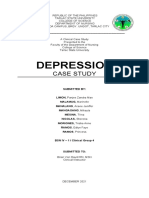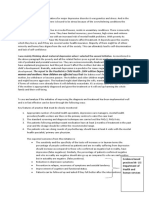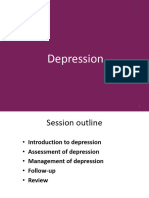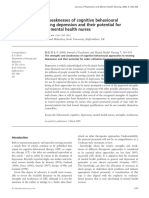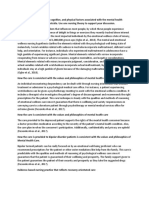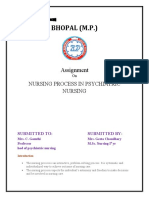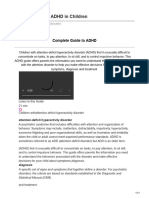0% found this document useful (0 votes)
4 views9 pagesAddressing Depression
The document discusses the impact of depression on individuals and families, using the case of an imaginary husband, Robert, to illustrate the challenges faced. It emphasizes the role of baccalaureate-prepared nurses in addressing depression through evidence-based practices, leadership, collaboration, and communication. The paper highlights the importance of family involvement, overcoming barriers to treatment, and advocating for mental health policies to improve outcomes for patients and their families.
Uploaded by
eileenchelangatkiruiCopyright
© © All Rights Reserved
We take content rights seriously. If you suspect this is your content, claim it here.
Available Formats
Download as DOCX, PDF, TXT or read online on Scribd
0% found this document useful (0 votes)
4 views9 pagesAddressing Depression
The document discusses the impact of depression on individuals and families, using the case of an imaginary husband, Robert, to illustrate the challenges faced. It emphasizes the role of baccalaureate-prepared nurses in addressing depression through evidence-based practices, leadership, collaboration, and communication. The paper highlights the importance of family involvement, overcoming barriers to treatment, and advocating for mental health policies to improve outcomes for patients and their families.
Uploaded by
eileenchelangatkiruiCopyright
© © All Rights Reserved
We take content rights seriously. If you suspect this is your content, claim it here.
Available Formats
Download as DOCX, PDF, TXT or read online on Scribd
/ 9



